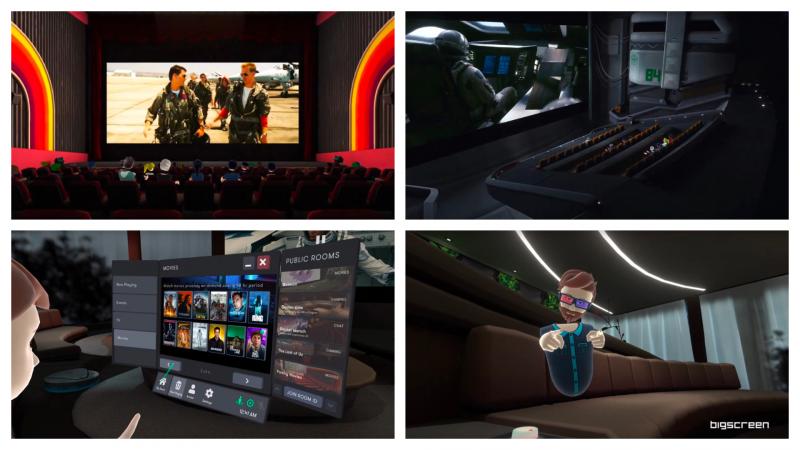Curator's Note
Faced with closed movie theaters over the past months, cinephiles worldwide have bemoaned the loss of the shared cinema experience and what I have called “the audience effect.” Yet some early adopters were quick to point out an alternative: virtual reality movie theaters. “This is literally perfect for quarantine,“ one user commented on YouTube.
Assume you have purchased a 500 to 800 Euro VR headset (like Oculus Quest or Valve Index) and mounted it on your head; you have created an account with a social VR app (like Bigscreen); you have bought a 4.99 Euro ticket with your credit card for the screening of a film (like Jackass 3D) or entered a “Public Room” where someone is streaming a movie for free; you have given your avatar, with its unrealistically floating torso, a customized appearance; you have chosen a seat in one of the virtual theaters (like the ‘Retro Cinema’); you have placed your digital popcorn or tomato (!) in front of you so you can ‘eat’ it or throw it at the jackasses on the screen; and you have realized that a few other avatars are scattered around, too.
You can follow the social distancing rules and at the same time feel, through your microphone and sense of hearing, medially co-present with others. You are on your living-room sofa’s here, in your VR cinema’s there and in the screened film’s there-there. Partners in long-distance relationships or families spread over continents can talk to each other during the movie. The universalization of film, dreamed of by early theorists and cinema enthusiasts, gains a new quality.
But wait a minute! Social VR is not available everywhere, not enough people possess the necessary hardware, and, because devices are individualized, collective experiences require considerable investments. Nor are VR headsets pleasurable: Your face may get hot, and the goggles strain your neck. And it’s difficult to eat real food. Not least, norms of etiquette are lacking: It’s not uncommon that viewers—hidden behind their anonymized avatars—snap at you or even throw a tomato at you.
“To argue whether a technological innovation is good or bad is a waste of time, because its justification lies exclusively in its impact,” André Bazin wrote in 1953, during another enormous crisis for cinema. Will we, one day, look back at this Covid-19 pandemic as the moment when VR movie theaters became an alternative to the social experience of cinemagoing IRL (= in real life)? We’ll see.

Add new comment